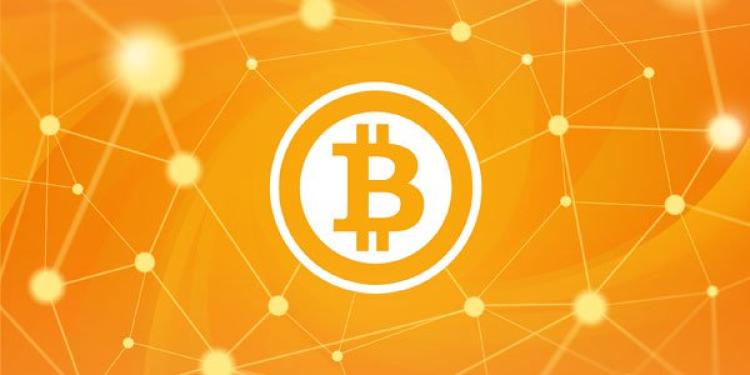Richard Branson vs. Dr. Doom: Betting on the Future of Bitcoin
Posted: March 12, 2014
Updated: October 4, 2017

Bitcoin has polarized the business and academic communities, with bears and bulls coming out to argue their respective cases.
Bitcoin is the biggest thing since… whatever the biggest thing before Bitcoin was. The virtual currency captured the limelight last year and is now accepted by a variety of online companies. But since December 2013 its reliability has been called into question due to regulatory problems, hackings and market volatility. Still, it has high-profile supporters. This article will discuss the lovers, the haters and the indifferent.
Bits of coins
What is Bitcoin? It is a digital currency made through a “mining” process in which new coins are created through a complex data encryption process. It’s difficult to do, so growth in the supply is relatively predictable. Think of it as digital gold (which would be a cool name for an electro group). Its value lies in the fact that it can be exchanged for hard currency.
It was first invented in 2009 but didn’t rise to the popular forefront until early last year. But 2013 was really a bull year, with companies like Overstock, Virgin Galactic, the Sacramento Kings, the iGaming provider Zynga as well as online casino in Britain Bet365 and US-based betting site Bovada doing business in it. The exchange rate jumped to $1200 per coin in December.
Branson and the Bitcoin bulls
• Sir Richard Branson is the most visible supporter of Bitcoin, while Nouriel Roubini and Warren Buffet remain skeptical
• The exchange rate topped $1200 last year but now sits at $626
• Last month two major exchanges, MtGox and Flexcoin, declared bankruptcy after being hacked
Several prominent business leaders and economists have jumped on the Bitcoin bandwagon. The most notable among them is Sir Richard Branson, the eccentric head of Virgin. His pet project, Virgin Galactic, now accepts the virtual currency as payment. Aside from being excited by Bitcoin’s innovative nature, Branson thinks that the limited ability to create new coins makes them a safe store of value:
“I think the fact that there’s going to be a limited number of bitcoins out there and it will ultimately be capped – unlike normal currencies where governments can print more currencies – gives it a sense of security… There have been spikes and lows. But I think one day it will settle at a price that, I personally believe, is higher than the price today.”
Some other major investors are Chris Dixon, Roger Ver and Charlie Shem. US billionaire Mark Cuban is excited about the future of Bitcoin but retains some skepticism.
Dr. Doom and the Bitcoin Bears
The anti-Bitcoin camp gets much of its academic backing from economist Nouriel Roubini of New York University, who gained the nickname “Dr. Doom” after repeatedly warning of the upcoming financial crash and recession in the years running up to 2008. Roubini and those like him are not against Bitcoin for philosophical reasons, but do not view it as a reliable currency.
Roubini’s main concern is that Bitcoin is not safe, expressing via twitter: “So Bitcoin isn’t a currency. It is btw a Ponzi game and a conduit for criminal/illegal activities. And it isn’t safe given hacking of it.” This criticism stems from the fact that it exists only virtually, there is no physical store of value associated with it.
Respected investor Warren Buffet is also a Bit-skeptic, viewing investing in the currency somewhat like playing online poker in America: high-risk. He recently echoed Roubini in saying that Bitcoin is “not a currency” and that it isn’t a store of value, so isn’t a good bet against inflation. He also argued that Bitcoin’s value depends purely on that of the dollar and predicted that it won’t exist 20 years from now.
Given recent problems with Bitcoin, Roubini and Buffet seem to have a point. The exchange value plummeted last December and the People’s Bank of China announced it would not allow Yuan to be traded for Bitcoin. And that was just the beginning. 2014 has been an especially bad year, with two major exchanges, MtGox and Flexcoin, going bankrupt last year. The cause? Hackers broke into their systems and stole roughly half a billion dollars in coins. The rate now stands at $626 per coin, down 48 percent from December. There are also concerns that Bitcoin is used to finance the activities of organized crime organizations dealing in unsavory things like drugs, weapons and prostitutes.
Taking bets: will Bitcoin survive?
Bitcoin is clearly beleaguered. Some of its biggest exchanges have collapsed and its value has declined significantly. But there are indicators that it’s not on its way out just yet. Despite all of the scandal, the exchange value has risen from $545 to $626 over the past week, close to where it was trading before the MtGox hacking and bankruptcy incident. In addition, Bitcoin is still being accepted by companies ranging from online retailers to Swedish internet casinos, and even some small businesses are starting to accept it.
Governments in Europe and Japan are now exploring options to regulate the virtual currency. Effective regulation could make Bitcoin more stable, with things like capital requirements on exchanges, deposit insurance, and oversight to prevent money laundering making the virtual currency operate more like a traditional currency. The pioneers of Bitcoin developed it precisely because it was unregulated, but it looks like the currency won’t escape the watch of government for too long.
• Final Verdict: Bitcoin isn’t going away anytime soon












